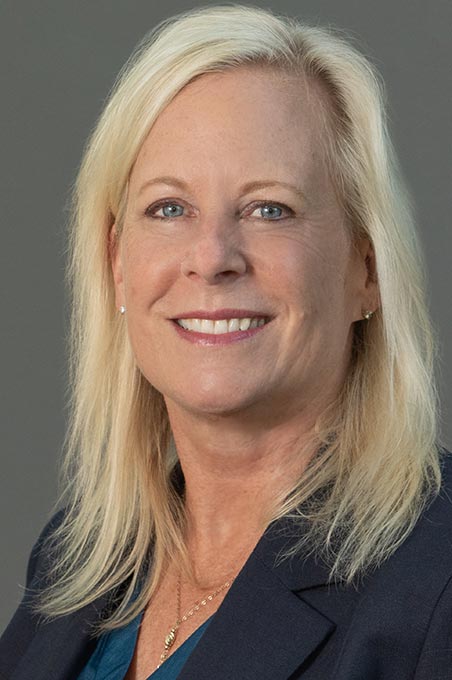
Jeanette Shaw is the new face on the Tigard City Council and although she was just sworn in Jan. 5, she is more than ready to tackle the issues facing the city.
Although she has been busy for years as a mom with students in the Tigard-Tualatin School District, and was involved in multiple organizations, this is her first foray into serving as a government official.
But given her professional life, it was no doubt only a matter of time until she ran for elective office. Her website describes her as an experienced government affairs/public policy executive assisting for-profit companies, non-profits, start-ups and trade associations in strategically developing legislative and regulatory policy to enhance strategic business objectives and to minimize legislative and regulatory risks.
Shaw also has served on numerous boards and commissions that include working to develop legislative and regulatory strategies to support green innovation, including LED lighting and solar energy, in the technology, semiconductor and wine industries. One of her focuses is transportation, including transit, electric/hybrid vehicles, electric buses and shared mobility. In Salem she was successful in 2017 in influencing the Legislature to pass an electric car rebate for all income levels.
“Transportation electrification and hydrogen vehicles, both passenger and medium and heavy-duty vehicles, will assist the state in reaching its Green House Gas (GHG) emission goals,” said Shaw, noting that cars are the second most expensive item in households. “Only mortgage payments or rent are higher than costs associated with vehicles. Electric vehicles cost less to maintain so in the long run you keep more money in your pocket.”
However, Shaw believes that all drivers should pay for road maintenance and improvement projects and is an advocate of Oregon’s OReGO program. Electric- and hybrid-vehicle owners are clearly not paying the same amount of fuel tax as drivers of fuel-powered vehicles. Currently Oregonians pay 36 cents per gallon of fuel, and OReGO participants pay 1.8 cents for each mile they drive, which goes directly into the State Highway Fund.
In 2019 the Legislature authorized the Oregon Department of Transportation to allow unlimited OReGO participants. Drivers of fuel-powered vehicles can receive a credit for fuel tax and remote emissions testing, and drivers of electric vehicles are eligible for reduced registration fees. Participants sign up with an account manager, select a mileage reporting option and receive a bill for reported miles.
Clearly, COVID-19 is on everyone’s mind, especially those who have been severely impacted by the pandemic, and Shaw believes that Tigard should continue its efforts to help those in need.

Tigard already is providing financial assistance for city fees and charges through its Tigard AID program, and it partnered with Micro Enterprise Solutions of Oregon to award grants to small businesses impacted by COVID-19. Tigard has more than 2,000 very small businesses, and after the City Council approved the Tigard CARES program in April 2020, it awarded 94 $1,500 grants to companies with limited access to commercial banks and federal support.
“I’m proud that Tigard enacted the Tigard CARES program and that this City Council is supporting businesses and making recovery a priority,” Shaw said.
While all jurisdictions are under state pandemic restraints, Shaw said the city still needs to go forward with economic development. “Continuing to attract businesses and jobs to the Tigard Triangle, Washington Square and Main Street, especially industries that will increase jobs for residents, is key and in tandem with that, and we need additional housing for middle-to-low-income residents,” she said. “If you have healthy housing, you have healthy residents.”
Shaw is supportive of the new low-income senior apartment complex going up next to the Tigard Senor Center, which will help reduce the housing crunch a little.
According to the city’s website, 28 percent of Tigard residents are considered rent-burdened, which means they spend more than 50 percent of their household’s income on rent. Tigard is considered a severely rent-burdened city because more than 25 percent of its renter households are rent burdened.
In addition to meeting seniors’ housing needs, Shaw is concerned about their isolation during the pandemic. “There is potential for depression and food scarcity,” she said. “There also are a lot of ramifications for students not being in school since last March, and while it is important to focus on students and workers, seniors’ needs are just as important. I’m sure as we come out of COVID that we will be able to focus more on seniors.”
Shaw believes that while the City Council will be facing a lot of challenges in the next year, it will be able to have a positive impact on many of its residents and programs.






















